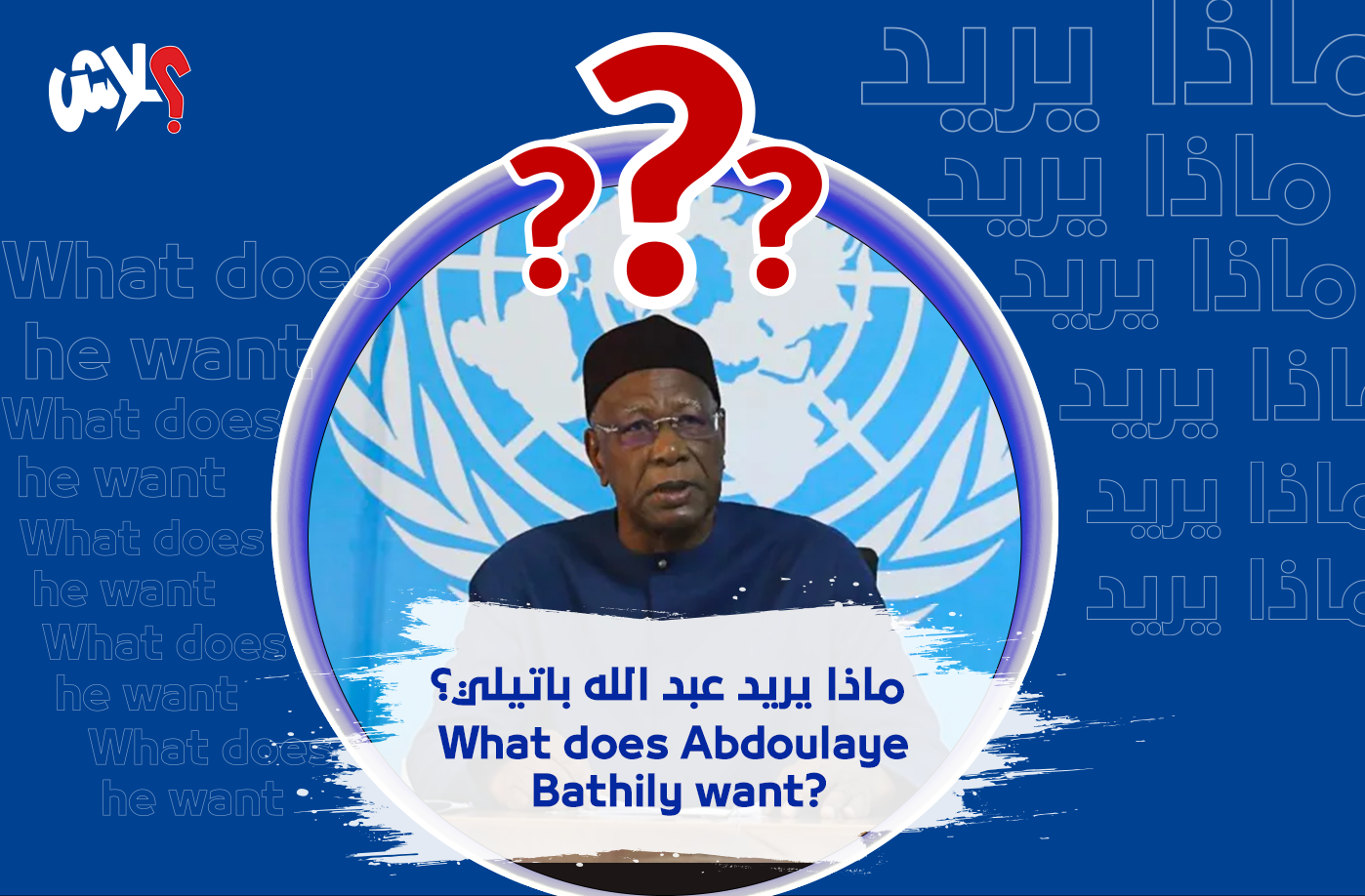What does Abdoulaye Bathily want?
It seems that Abdoulaye Bathily, before the presidential and legislative elections were issued by the House of Representatives, was not Abdoulaye Bathily afterwards, specifically in the interaction of the political forces with him, and with what he proposes regarding the political situation in Libya, as some believe that his statements on the issue of the necessity of finding a consensus formula between the political parties, in violation of the previously established program, which stipulates that as soon as the legal basis for the elections is issued by the 6 + 6 Committee, to presumably go directly to the elections that will end the transitional phase that Libya is going through.
The source of the UN envoy’s statements regarding the necessity of finding a political consensus among the political leaders in Libya was based on the Supreme Council of State dismissal of the laws that were issued by Parliament regarding elections, as the Council considered that the version that was removed from Parliament on the basis that it was a law was in violation of the agreements that were made between the two councils in Bouznika, Morocco, during the past year, which they see as a violation of the agreement on the basis of which the 6+6 Committee was established. The Supreme Council dissolved the committee, and considered it to no longer represent the state of consensus between the two councils. This narrative is supported by the Government of National Unity in Tripoli.
In the same context, the House of Representatives and its supporters believe that going to the elections is linked to the formation of a mini-government that will supervise the elections, and that the Edbaiba government cannot supervise the elections itself, on the grounds that it is part of the electoral process, as its president, Abdulhamid Edbaiba, had previously run for the presidential elections which were scheduled to be held at the beginning of December 2021. Therefore they see that it is not possible for it to be part of the and to supervise the elections at the same time, not to mention accusing it of buying off debts and fear of electoral fraud, as stated by Parliament Speaker Aguila Saleh.
This debate is taking place and the countdown to the election date has begun, as there is a clear article in the issued electoral laws that stipuates that after the High Electoral Commission receives the electoral laws, the election date will be 240 days after receipt. The High Electoral Commission has officially received the laws from the House of Representatives, and in practice we are now in the countdown to the date of holding the elections, which is supposed to be according to the law at the beginning of April 2024, otherwise there is no clear picture of how to start these elections, even though the High Elections Commission has stated more than once that it is ready to hold the elections on the specified election dates.
So wherein lies the issue?
The issue is that many people familiar with Libyan affairs believe that the electoral process and its success are not only linked to the passing of electoral laws, as the controversial figures who are expected to run for elections are considered a problem in themselves, and here we specifically mean Saif Al Islam Al Gaddafi, as there are those who believe that one of the most important reasons for postponing the last election was his candidacy, and this matter was done by American pressure on the High Elections Commission, so that the High Elections Commission would come out and declare that there are security challenges that prevent it from holding fair elections on the specified date, in addition to the fear present in the political arena today regarding the issue of accepting the election results for the losing party in the elections. The absence of a legal or consensual framework in the form of an agreement signed by all those involved in the electoral process leaves the matter open to speculation, and it is very natural and even expected that whoever loses the elections will reject the results, and return the political scene to its starting point, through a Blitzkrieg, oil fields shut down, or the declaration of independence of one of the historical Libyan regions, just to thwart the electoral process and its outcomes.
It seems that this is what the UN representative fears when he says that there must be agreement on electoral laws by the political leaders in Libya, before starting to conduct the electoral process itself. This is what some consider being a bypass of the outcomes of the 6+6 Committee, and that the UN envoy has no right to comment on the electoral situation, and the proponents of this idea believe that the UN envoy seems to be leaning toward the idea of the continuation of the Government of National Unity until the presidential and parliamentary elections are held, and the country moves to a new political situation. Therefore, voices are raised denouncing every step taken by the UN envoy.
Hence we believe that the basic idea that we are supposed to work on is the importance of the upcoming elections being a process to move the situation of the Libyans to a better situation than it exists now, because every time we cannot use the elections as a process to improve the situation, the idea deepens in the Libyan collective mind that the elections is not the process that we are supposed to rely on to improve the situation, and to transfer power peacefully through it, because in our experience so far, it only ignites wars. Therefore, we must all be keen to ensure the success of the electoral entitlement in a way that guarantees a better political situation than we are currently in.
If we succeed in this, then we can accept or reject the opinion of Bathily or others!

